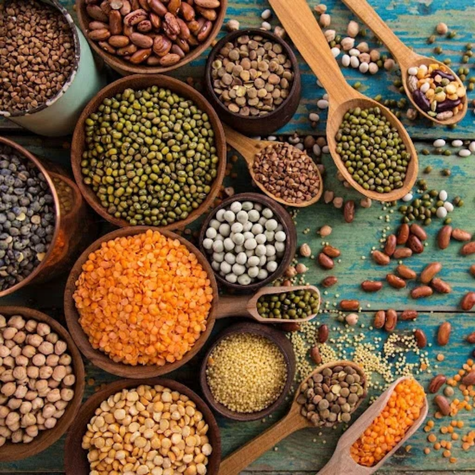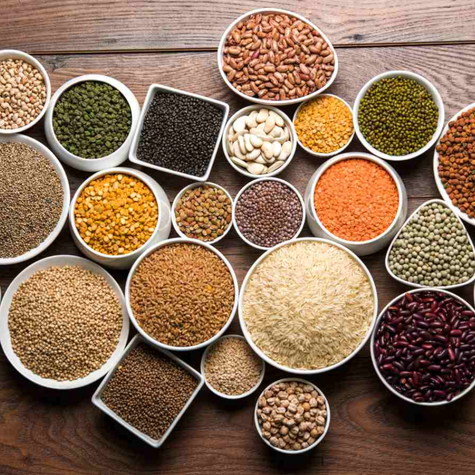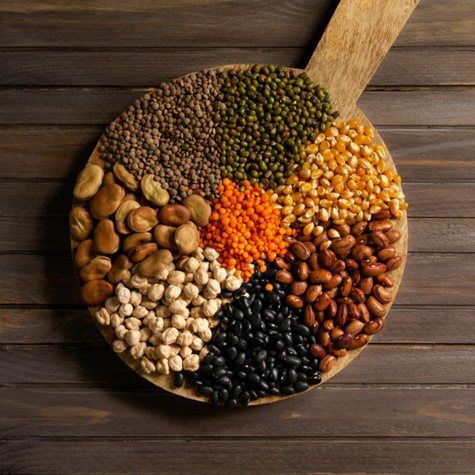Food Ingredients
Grains
Grains are the edible seeds of cereal plants and are a staple in diets around the world due to their nutritional value, versatility, and ability to provide energy. Common grains include wheat, rice, corn, oats, barley, quinoa, and millet. They are rich in carbohydrates, fiber, and various essential nutrients like vitamins and minerals, such as B vitamins, iron, and magnesium. Grains can be consumed in various forms, including whole grains, which retain their bran, germ, and endosperm, providing more fiber and nutrients, and refined grains, which have been processed to remove the bran and germ. Whole grains are particularly valued for their health benefits, including supporting heart health, promoting digestion, and stabilizing blood sugar levels. Grains serve as the foundation for many food products like bread, pasta, breakfast cereals, and rice dishes
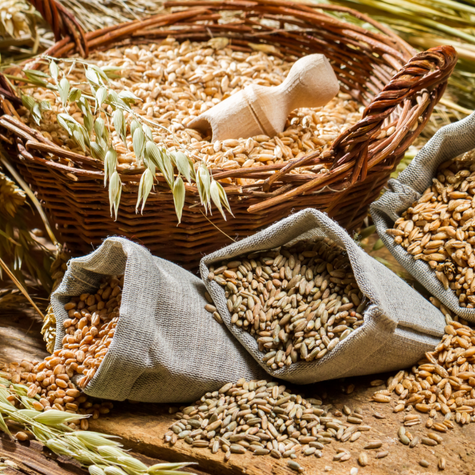
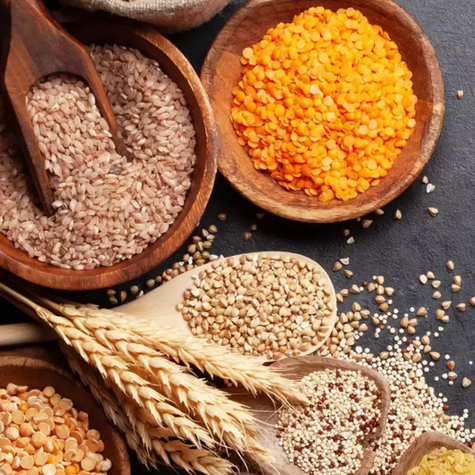
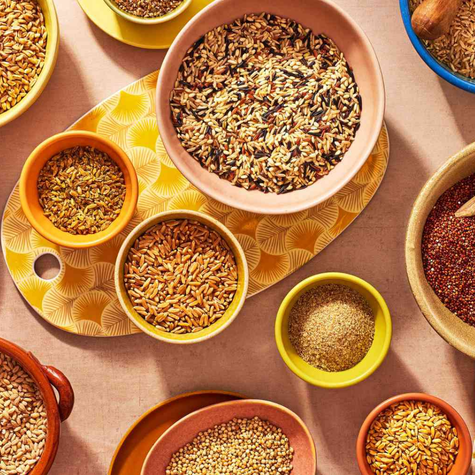
Lentils
Lentils are small, lens-shaped legumes that belong to the Lens genus. They come in a variety of colors, including green, brown, red, yellow, and black, each with its own slightly different flavor and texture. Lentils are a rich source of plant-based protein, fiber, and essential nutrients such as iron, folate, and magnesium, making them a popular choice in vegetarian and vegan diets. They’re also low in fat and cook relatively quickly compared to other legumes. Lentils are incredibly versatile and can be used in soups, stews, salads, and curries, often taking on the flavors of the ingredients they’re cooked with. In addition to their nutritional benefits, lentils are also known for their ability to support heart health, improve digestion, and stabilize blood sugar levels
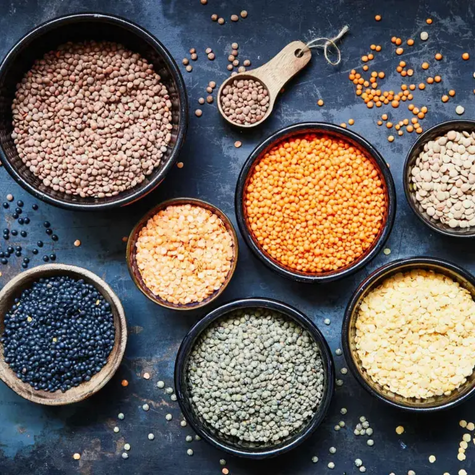
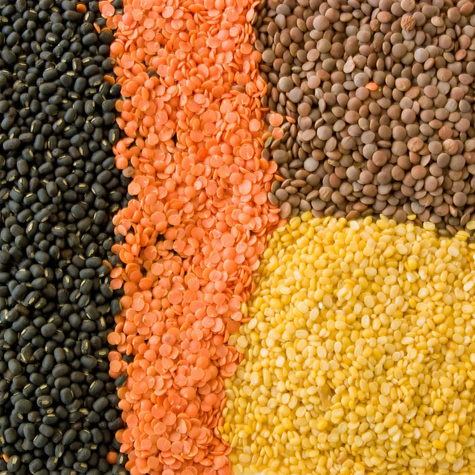
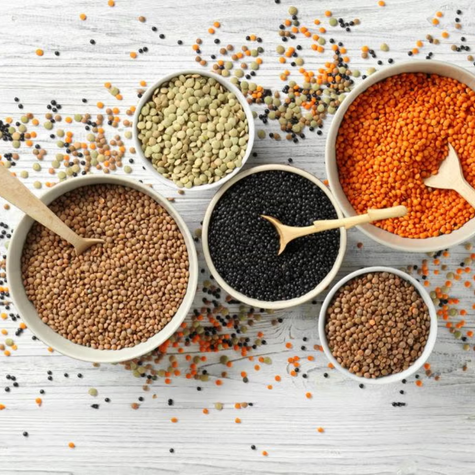
Pulses
Pulses are a category of legumes that include dried beans, lentils, peas, and chickpeas. These edible seeds come from plants in the Fabaceae family and are known for their high nutritional value, particularly their protein, fiber, and mineral content. Pulses are a key part of many diets around the world due to their affordability, versatility, and ability to provide essential nutrients, especially for those on plant-based diets. Common examples of pulses include black beans, kidney beans, chickpeas, lentils, and split peas. Pulses are an excellent source of plant-based protein, making them a valuable protein substitute in vegetarian and vegan meals. They are also rich in complex carbohydrates, which provide sustained energy, and have a low glycemic index, which can help stabilize blood sugar levels. Additionally, pulses are high in dietary fiber, which supports digestive health and can help lower cholesterol levels, contributing to heart health
